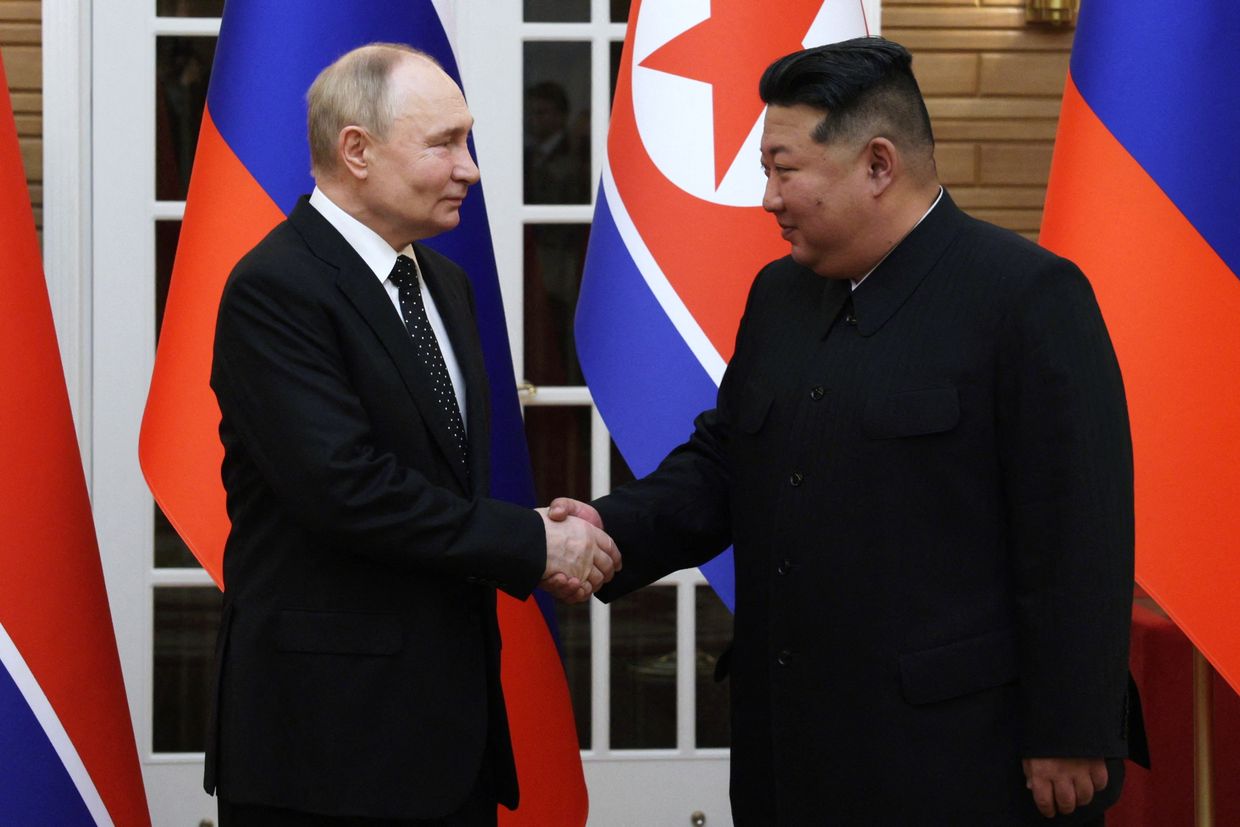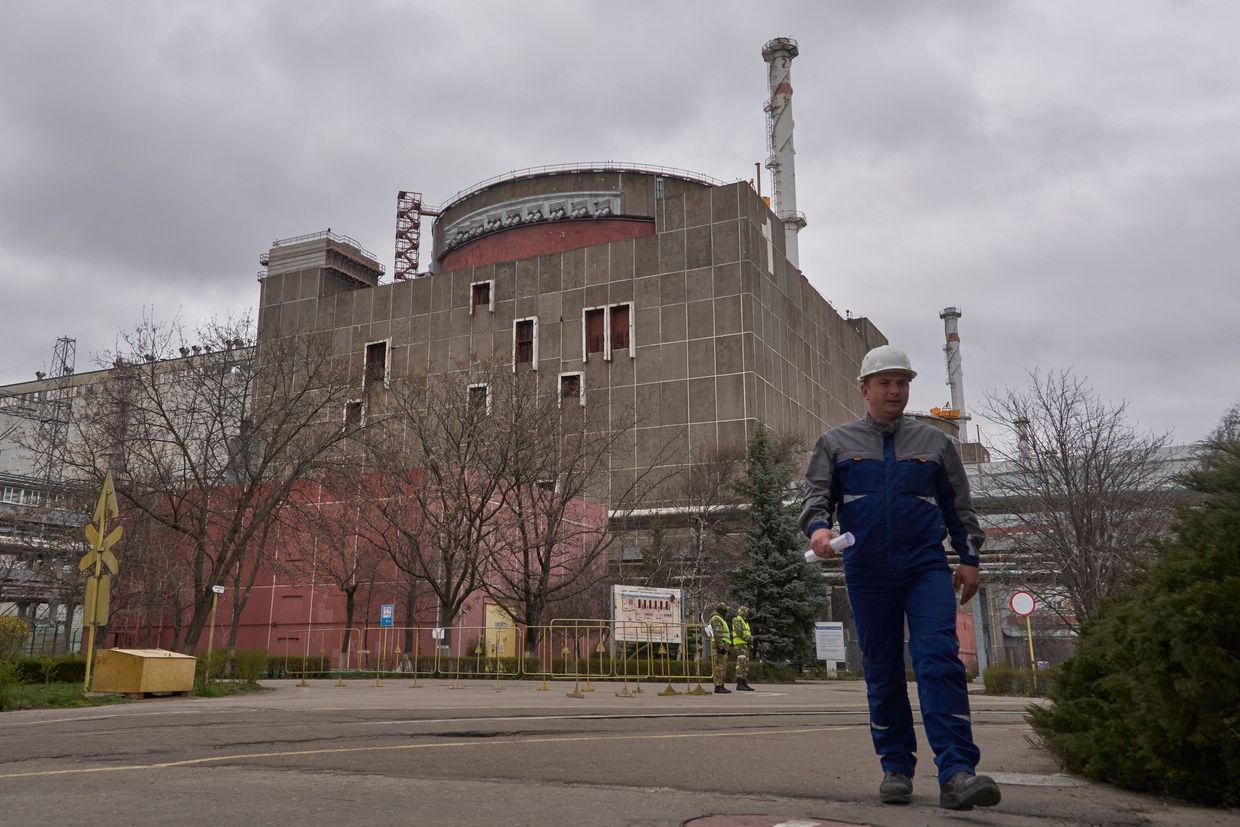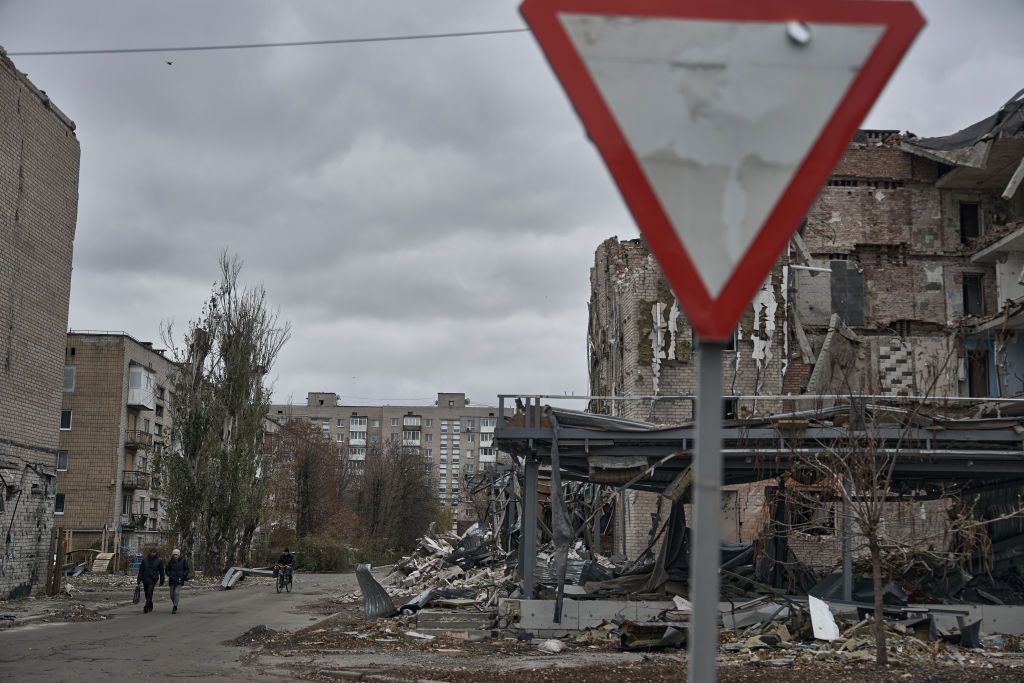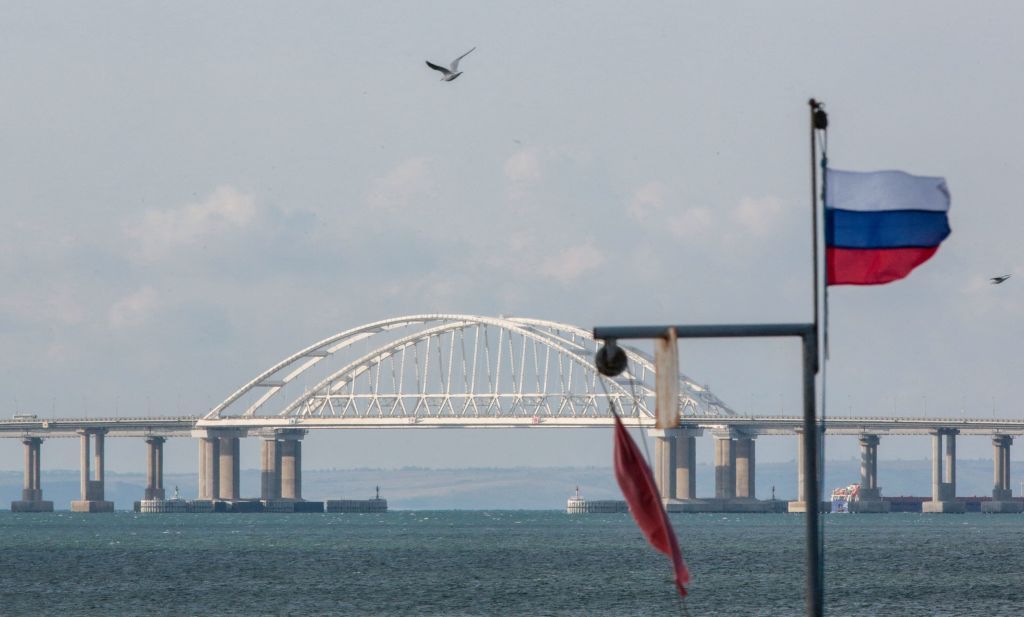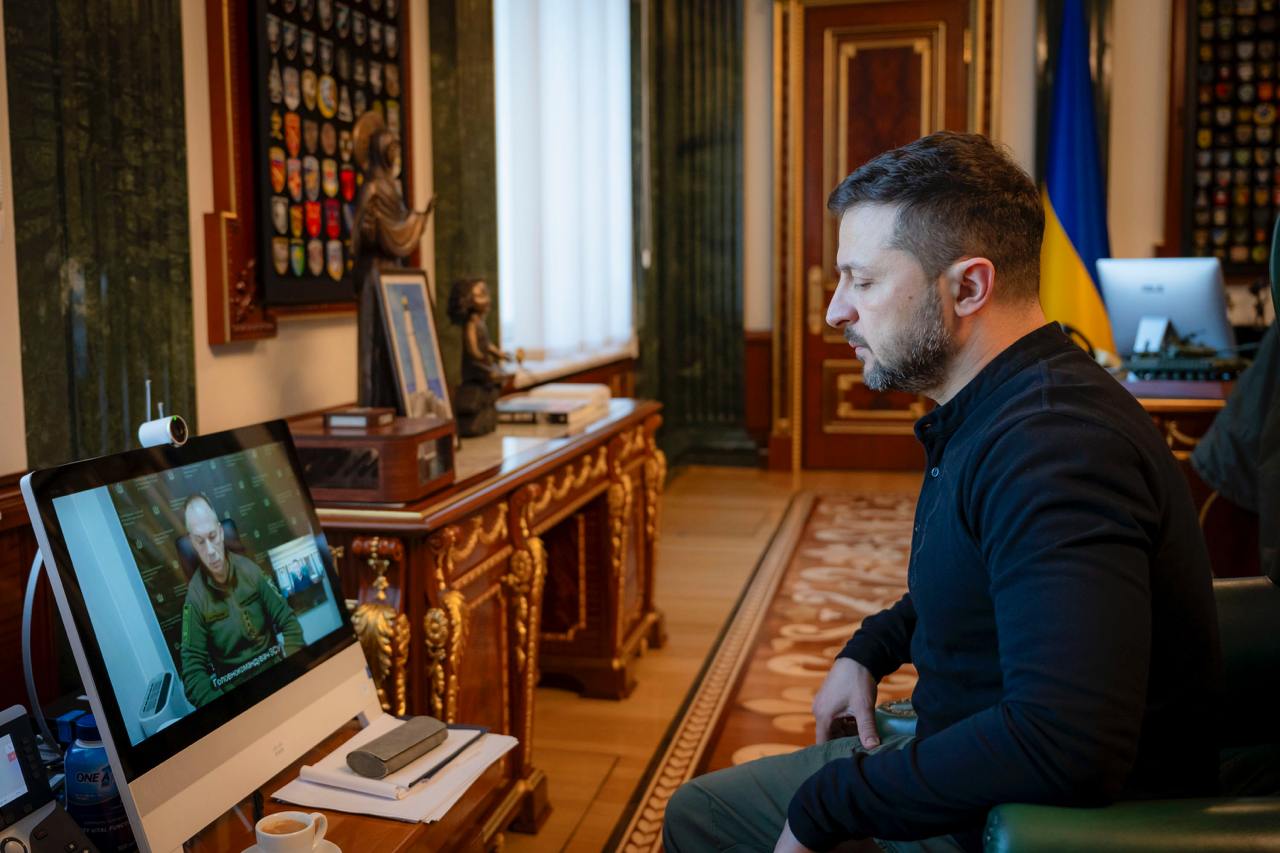Ukraine war latest: North Korean troops joining Russian assaults in Kursk, Zelensky says

Key developments on Dec. 14-15:
- North Korean troops joining Russian assaults in Kursk, Zelensky says
- Ukraine destroys Russian train with 40 fuel tanks in Zaporizhzhia Oblast, source claims
- 292 front-line clashes recorded over the past day, General Staff reports
- Two Russian oil tankers reportedly sink in Kerch Strait
- North Korean troops open fire on Russian unit, Ukraine's military intelligence claims
A "significant number" of North Korean soldiers have begun fighting alongside Russian forces in assault operations in Kursk Oblast, President Volodymyr Zelensky said in his evening address on Dec. 14.
Ukrainian and Western officials in fall 2024 warned that over 10,000 North Korean troops had amassed in Kursk Oblast, ready to aid Russia's attempt to oust Ukrainian forces in the region. The move represents an unprecedented escalation in Russia's war against Ukraine.
"Today, we already have preliminary data that the Russians have begun to use North Korean soldiers in their assaults — a significant number of them," Zelensky said in a video address.
"The Russians include them in combined units and use them in operations in Kursk Oblast."
North Korean troops have not yet joined Russian forces in any other areas of the front, but this could change, Zelensky said.
Zelensky also reported that North Korean units have sustained "noticeable losses."
Russian President Vladimir Putin has "dragged another state into this war," Zelensky said.
"And if this is not escalation, then what is the escalation that so many have been talking about?"
The first clashes between North Korean and Ukrainian troops in Kursk Oblast were reported in early November. Zelensky reported on Dec. 1 that North Korean soldiers had already been killed fighting for Russia, but did not specify figures.
Moscow and Pyongyang have deepened their alliance over the course of the full-scale war. The two nations signed a defense treaty in June, requiring either state to render military aid to the other in the event of an attack.
North Korea has reportedly provided Russia with over 100 ballistic missiles and 5 million artillery shells. In exchange, Moscow has allegedly given Pyongyang economic support and assistance with its nuclear weapons program.
Ukrainain forces launched a shock offensive into Kursk Oblast in August. Russia began a counterattack in September and has reportedly taken back 40% of the territory initially captured by Ukraine.
Ukraine destroys Russian train with 40 fuel tanks in Zaporizhzhia Obalst, source claims
Ukrainian intelligence agencies destroyed a Russian train carrying 40 fuel tanks in the Russian-occupied part of Zaporizhzhia Oblast on Dec. 14, an intelligence source told the Kyiv Independent.
The source said that the aim of the operation was to disrupt a supply line used to transport fuel from Crimea to Zaporizhzhia Oblast.
The operation was carried out jointly by the Security Service of Ukraine (SBU), the Ukrainian army's Tavria Group, the Military Intelligence Agency (HUR), and the Special Operations Forces (SSO).
The operation began with the SBU organizing a sabotage mission to destroy railroad tracks near the village of Oleksiivka in the Bilmak district, the source said.
As the train carrying 40 fuel tanks was moving along the tracks, an explosion derailed the train, and some of the tanks ignited, according to the source.
Using HIMARS rockets, the Ukrainian forces targeted the locomotive and the outermost cars, preventing Russian forces from ripping apart the tanks and saving some of the fuel.
The operation resulted in the complete destruction of the locomotive and 40 fuel tanks, effectively crippling a key supply line to Russian forces in the region and rendering the targeted rail line inoperable, the source said.
The operation follows another alleged operation by the Atesh partisan group, which said it had sabotaged a key railway in Zaporizhzhia Oblast on Nov. 16, knocking out electrical equipment and disrupting Russia's military supply chain.
Ukraine has been strengthening its defensive positions near the city of Zaporizhzhia in anticipation of a potential Russian offensive in the region. Local authorities, including the citys' mayor, Oleksandr Fedorov, have confirmed the ongoing construction of multi-level fortifications designed to bolster the city’s defense.
This effort comes amid growing concerns over Russian military movements in the region. On Nov. 25, President Volodymyr Zelensky said that Ukraine is closely monitoring Russian troop movements in southern Ukraine, noting that the threat of a renewed offensive remains high.
The escalation in the south follows a broader trend of intense military activity, with Russia also concentrating its efforts along the eastern front. In Donetsk Oblast, Russian forces have been pushing aggressively toward key towns such as Pokrovsk and Kurakhove, aiming to break through Ukrainian defenses.
292 front-line clashes recorded over the past day, General Staff reports
A total of 292 combat clashes were recorded along the extensive eastern front line on Dec. 14, according to a new operational summary from the General Staff of the Armed Forces of Ukraine.
Russian forces continue their assaults employing diverse weaponry and tactics to strike Ukrainian positions, with a concentrated focus on Kharkiv, Donetsk, Zaporizhzhia, and Kherson oblasts.
According to the report, Russian forces conducted one missile strike, utilizing two missiles aimed at Ukrainian unit positions and settlements.
They also carried out 61 aviation strikes, involving 99 Controlled Aerial Bombs (KABs), over 5,000 artillery shelling incidents, including 158 rocket salvo system attacks, and deployed more than 3,000 kamikaze drones across various regions.
In response, the Defense Forces conducted 35 targeted strikes against Russian troop concentrations, armaments, and military equipment.
These efforts resulted in the destruction of one unmanned aerial vehicle (UAV) control point, three artillery systems, and two air defense systems.
Ukrainian forces successfully defended their positions and repelled numerous enemy attacks across multiple regions, including Kupiansk, Lyman, and Pokrovsk. In these areas, Ukrainian defenders thwarted 52 attacks. Other key locations, such as Toretsk, Kurakhiv, Kramatorsk, and Siversk, also saw significant resistance.
Despite these official updates, Stanislav Buniatov, a platoon commander of the 24th Separate Assault Battalion Aidar, expressed concerns about the situation in Kurakhiv on his Telegram channel, stating, "The advantage in manpower and firepower is multiple; in such conditions, it is very difficult, one might say unrealistic, to hold defense in dense construction."
These concerns were echoed by DeepState, which reported on its Telegram channel that, as of Dec. 15, Russian forces had captured the city council in Kurakhiv and raised their flag over it.
In the northern areas of Volynsk and Polisk, the operational situation remains stable, with no signs of offensive group formations by Russian forces.
The situation on Dec. 15 showed a slight intensification in combat compared to the previous day, according to data shared by the General Staff. The number of combat clashes increased from 205 to 292, and Russian airstrikes rose from 38 on Dec. 13 to 61 on Dec. 14.
These updates follow reports of a dire situation near Pokrovsk in eastern Ukraine, as Russian forces continue to gain ground, putting additional pressure on Ukrainian defenses.
Recent reports indicate that Russian troops have successfully advanced to key locations, and Ukrainian forces are struggling to hold the line against a well-equipped and larger Russian military, despite efforts to recapture lost positions.
Two Russian oil tankers reportedly sink in Kerch Strait
Two Russian tankers have suffered significant damage in the Kerch Strait due to severe weather conditions and have already sunk, Russian media outlets Mash and Baza reported on Dec. 15.
Russia's Emergency Situations Ministry also reported that the tankers, Volgoneft 212 and Volgoneft 239, had been damaged.
Both vessels were carrying approximately 4,000 tons of fuel oil on board each, according to Baza.
The Volgoneft 212 has 13 crew members aboard, while the Volgoneft 239 has 14. Both crews have requested assistance.
In response, Russia's Emergency Situations Ministry stated that a Mi-8 helicopter with rescuers was deployed and that 13 sailors were evacuated from the Volgoneft-212, but one of them had died.
The ministry has primarily focused on ongoing rescue operations, offering few details on the current condition of the tankers.
According to eyewitness accounts reported by Mash, the Volgoneft-212 was cut in half by waves near the coast of Kerch, while the Volgoneft-139 sank within minutes after waves created a hole in the hull, causing a crack that split the ship in two.
Mash reported that both tankers were built around 50 years ago and were hastily converted in the 1990s from full-fledged tankers to "river-sea" class vessels.
The rushed modifications included cutting the ships in half, discarding the center, and welding the bow and stern together, leaving a large seam that failed under the impact of powerful waves. This seam ultimately split apart, contributing to the vessels’ sinking.
Baza reported that investigators have opened two criminal cases following the sinking of the tankers, though this has not been confirmed by official sources.
Russian-occupied Crimea is home to the Russian Black Sea Fleet but successful Ukrainian strikes on Crimea have forced Moscow to relocate much of its naval forces from the peninsula to the Russian port city of Novorossiysk.
Ukraine has repeatedly struck Russia's vessels since the beginning of the full-scale invasion. Around 30% of Russia’s Black Sea Fleet is lost or disabled, according to the Ukrainian military.
North Korean troops open fire on Russian unit, Ukraine's military intelligence claims
North Korean troops fighting alongside Russian forces in Kursk Oblast killed eight members of a Russian unit in a "friendly fire" attack, Ukraine's military intelligence agency (HUR) claimed on Dec. 14.
Earlier in the day, President Volodymyr Zelensky reported that a "significant number" of North Korean troops had joined Russian assault operations in the Kursk region.
While engaged in combat in Kursk Oblast, a group of North Korean soldiers opened fire on members of the Chechen Akhmat unit fighting for Russia, HUR reported via its official Telegram channel. The attack allegedly killed eight Russian soldiers.
The Kyiv Independent was unable to verify the report.
HUR said the incident was the result of the language barrier between Russian and North Korean troops, which continues to be a "difficult obstacle" on the battlefield.
An estimated 200 servicemembers fighting with Russian and North Korean units have been killed as of Dec. 14, HUR claimed.
Zelensky previously announced that North Korean personnel had begun incurring "noticeable losses," but did not provide a figure.
Ukrainian and Western officials in fall 2024 warned that over 10,000 North Korean troops had amassed in Kursk Oblast, ready to aid Russia's attempt to oust Ukrainian forces in the region.
The Russian military has instituted special protocols in places where North Korean personnel are located, HUR said. Russian soldiers must undergo inspections before entering these areas, and their phones and electronic devices are confiscated.
The first direct clashes between North Korean and Ukrainian troops in Kursk Oblast were reported in early November. According to Zelensky, North Korean personnel have not been deployed to any other areas of the front, but that could change in the future.


